Drought Summit
Online
From 29 September to 1 October 2020
Semi-Private
This meeting will bring together experts and water/drought planners and drought information users to discuss current experiences and develop recommendations for improving the access to and use of drought products, tools, and best practices in order to better address the drought planning needs of North American regional and local decision-makers.
Meeting Objectives:
- Convene and connect drought practitioners across Canada, Mexico, and the United States who are tasked with preparing, planning, and managing drought.
- Share experiences, challenges, and innovations in drought monitoring across North America.
- Formulate recommendations to address information gaps and barriers in access to national and international drought resources and tools, and to improve coordination and communication to better monitor, plan for and respond to drought in North America.
Improving Access and Use of Products and Tools for Drought — Trinational Drought Summit Report
Agenda
Tuesday, September 29, 2020
“Realities, barriers and challenges”
Virtual meeting log-in
Welcoming remarks, introductions and objectives

Commission for Environmental Cooperation
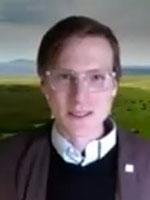
E.Cooper Environmental Consulting
“Three countries, one environment: Trilateral collaboration on drought”:
CEC initiative on Improving Resilience to Extreme Events and Climate Impacts

High level insights from the Assessment of North American Drought Information Products and Tools.

E.Cooper Environmental Consulting
Trinational Panel: Perspectives from Canada, Mexico, and the United States
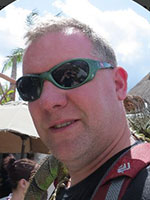
Agriculture and Agri-Food Canada and Barrie Bonsal, Environment and Climate Change Canada
Canada
Download Presentation

Comisión Nacional del Agua-Servicio Meteorológico Nacional
Mexico
Download Presentation

National Oceanic and Atmospheric Administration's National Centers for Environmental Information and Brian Fuchs, National Drought Mitigation Center
United States
Download Presentation
Breakout introduction & room transition
Breakout rooms
Meet and get to know fellow practitioners from Canada, Mexico, and the United States, for an afternoon tea or coffee. Please turn on your video for this session.
In round table introductions please share:
- Your name
- Your role in drought
- What you value most about your work on drought
Three rooms will be available in two languages, one in Spanish and one in English.
- Breakout Room 1: Transboundary Canada & USA (English Language)
Facilitators: Trevor Hadwen & Ernie Cooper - Breakout Room 2: General USA (English Language)
Facilitators: Elizabeth Weight & Christopher Carter - Breakout Room 3: General Mexico & Transboundary (Spanish Language) (Sala de grupo 3: México general y transfronterizo (idioma español))
Facilitators: Sol Ortiz & Alejandra Pena
A contact list will be available to conference participants for future networking opportunities.
10-minute break
Our Stories, Session 1: Current realities and practices
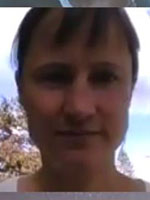
Viki Zoltay
Massachusetts Department of Conservation and Recreation
United States
Download Presentation

Ana Ortiz Ángeles
Grupo Semilla, Coahuila, Mexico
Gustavo Sánchez, Red Mexicana de Organizaciones Campesinas Forestales, A. C., Mexico
Download Presentation

Roger Pulwarty
United States
Download Presentation
12-minute break
Participant Consultation: Using the North American Drought Monitor (NADM)
1. Report back on the North American Drought Monitor (NADM) use Assessment survey: on the Assessment of North American Drought Information Products and Tools survey: What we heard from you about your use of the NADM.

E.Cooper Environmental Consulting
2. Let’s Discuss:
- Which barriers and realities do we need to understand in the use of NADM in your work?
- Do you have thoughts about the accuracy, applicability, relevance, or scale covered by the NADM tools?
- What additional information would assist you in monitoring drought in your local region or sector?
- Is there information that could be added to the NADM sites that could increase their value for planning, preparing or responding to drought?
Format: Questions and comments can be posted using the chat utility in Zoom; participant responses will be limited to 3 minutes.
Closing
Christopher Carter
- Day 1 wrap up
- Introduction to Day 2
Wednesday, September 30, 2020
“From knowledge to action”
Virtual meeting log-in
Day 1 Recap and introductions

E.Cooper Environmental Consulting
Keynote: “Minding the gap: From science to drought action and policy”
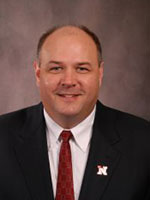
Our Stories, Session 2: Innovation using drought planning resources
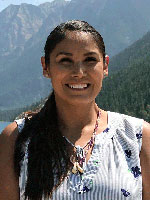
Shanny Spang Gion, Northern Cheyenne Nation,
United States and Marissa Spang, Northern Cheyenne Nation,
United States
Download Presentation
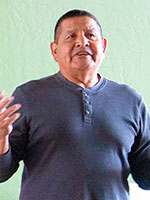
Selso Villegas,
Tohono O'odham Nation,
United States
Download Presentation
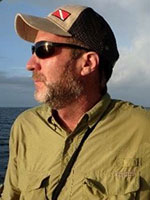
Michael Downey,
Montana Department of Natural Resources and Conservation,
United States
Download Presentation

Sol Ortiz,
Secretariat of Agriculture and Rural Development,
Mexico
Download Presentation

Ashlee Jollymore,
River Forecast Centre BC Ministry of Forests,
Lands, Natural Resource Operations and Rural Development,
Canada
Download Presentation
Format: Q&A Session will follow the last speaker. Questions and comments can be posted using the chat utility in Zoom.
15-minute break
Participant consultation: Action and Planning
1. Report back on the Assessment of North American Drought Information Products and Tools survey: What we heard from you about what you are using for drought decision support and policymaking.

E.Cooper Environmental Consulting
2. Let’s discuss:
- What are your current drought monitoring needs?
- What kind of timelines do you face in your operations?
- What analyses are most useful to you for dealing with short and long-term drought?
- How can you best be supported as you inform decision makers and prepare forecasts, policies and plans?
Format: Questions and comments can be posted using the chat utility in Zoom; participant responses will be limited to 3 minutes.
20-minute break
Participant consultation: Using the North American Drought Monitor (NADM) Tools
1. Report back on the North American Drought Monitor (NADM) use Assessment survey: What we heard from you about your use of the NADM.

E.Cooper Environmental Consulting
2. Let’s discuss:
- How do you use your national drought monitors?
- What is the role of national drought monitors in managing drought?
- Do you feel these products are accurate and consistent? Why or why not?
- What resource for monitoring drought is missing in your context?
Format: Questions and comments can be posted using the chat utility in Zoom; participant responses will be limited to 3 minutes.
Closing
Christopher Carter, E.Cooper Environmental Consulting
- Day 2 Wrap Up
- Introduction to Day 3
Thursday, October 1, 2020
“A Shared path forward”
Virtual meeting log-in
Day 2 Recap and panel introduction

E.Cooper Environmental Consulting
Drought tool bootcamp
Join us to learn about new resources, including a demonstration of emerging North American online drought tools and coordination platforms.

Trevor Hadwen,
Agriculture and Agri-Food Canada
Download Presentation

Reynaldo Pascual,
Mexican Drought Monitor
Download Presentation
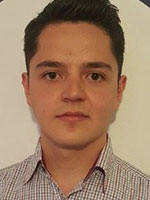
Mauricio Osorio González,
Mesoamerican Drought Monitor & Reynaldo Pascual, Mexican Drought Monitor
Download Presentation

Justin Huntington, Desert Research Institute
Rocky Bilotta, National Oceanic and Atmospheric Administration's National Centers
for Environmental Information
Download Presentation
20-minute break
Participant consultation: Forms of drought
1. Report back on the North American Drought Monitor (NADM) use Assessment survey: What we heard from you about the types of drought that most concern you.

E.Cooper Environmental Consulting
2. Let’s discuss:
- We have learned that many are very concerned with agricultural and meteorological drought. However, drought also comes in ecological, hydrological and socioeconomic forms, and drought types can interact. How can North American drought tools and resources better support you in responding to all types of drought?
- What reports and information from online and other resources would afford new insights to help address the drought types & interaction with other systems? For short term drought? For long term drought?
Format: Questions and comments can be posted using the chat utility in Zoom; participant responses will be limited to 3 minutes.
15-minute break
Our Stories, Session 3: Leading practices and the future of drought monitoring, planning and response
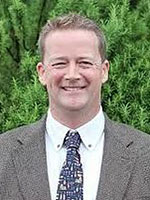
Barney Austin, Chickasaw Nation,
United States
Download Presentation
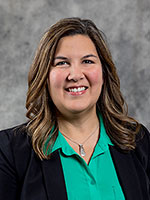
Laura Edwards,
South Dakota State University Extension,
United States
Download Presentation
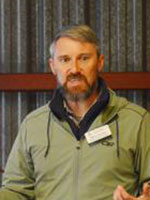
Mike Crimmins,
University of Arizona,
United States
Download Presentation

Emile Elias,
US Department of Agriculture Southwest Climate Hub,
United States
Download Presentation

Mauricio de la Maza
PRONATURA, Mexico
Download Presentation
Format: Q&A Session for all will follow the last speaker. Questions and comments can be posted using the chat utility in Zoom.
15-minute break
Participant consultation: Online resources of the future
1. Report back on the North American Drought Monitor (NADM) use Assessment survey: What we heard from you about the types of online drought management resources you use.

E.Cooper Environmental Consulting
2. Let’s discuss:
- Most practitioners interact with NADM resources by email subscription or via websites. How can we improve your navigation experience of online resources and coordination for drought monitoring and management?
- A few official supplementary or secondary websites exist alongside national drought monitor websites for each nation. How can we improve you connecting with these resources and the analyses and reports you desire?
- For practitioners using secondary websites, many turned to geospatial reports & visualizations. How can we improve these?
- What data products or tools are missing from main and supplementary NADM websites?
- How else can we improve online drought monitoring & early warning resources in North America?
Format: Questions and comments can be posted using the chat utility in Zoom; participant responses will be limited to 3 minutes.
Summit Closing
Christopher Carter, E.Cooper Environmental Consulting
Orlando Cabrera and Nayheli Alliu, Commission for Environmental Cooperation
Contact
Orlando Cabrera-Rivera
Head of Unit, Environmental Quality
(514) 350-4323